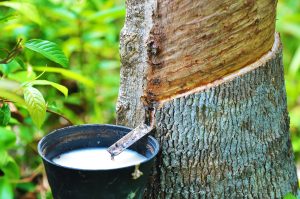The U.S. government has lifted an import ban on products from Malaysian rubber glove maker Smart Glove, after concluding that the company has addressed a range of exploitative labor practices.
In a statement issued Wednesday, U.S. Customs and Border Protection (CBP) said that it had rescinded its so-called “withhold release order” against Smart Globe, adding that the firm had demonstrated that its products “are no longer produced in whole or in part with forced labor.”
CBP sanctioned imports from Smart Glove, which makes gloves used in the medical and food industries, in November 2021, based on “information that reasonably indicates that Smart Glove production facilities utilize forced labor.”
“Smart Glove has taken various measures to address the indicators of forced labor that prompted the [withhold release order], to ensure that it is not utilizing forced labor throughout its supply chain,” CBP stated. It said that these efforts included “repayment of recruitment fees, improvements to living conditions, and implementation of new worker-centered policies and procedures.”
In recent years, companies from Malaysia have come under increased U.S. scrutiny over a range of suspected abuses, especially firms in the rubber and palm oil sectors.
Since 2020, seven Malaysian companies have been slapped with U.S. import bans over allegations of forced labor, including the use of intimidation and threats against workers, many of whom are migrants from South and Southeast Asia, and the retention of their identity documents by employers.
In March 2021, the U.S. government banned imports from the world’s largest glove maker, Top Glove, saying it had found reasonable evidence of forced labor practices at the company’s production facilities in Malaysia. (It lifted the ban in September after the company said it had resolved all indicators of forced labor in its operations.)
Seven months later, it did the same to imports from another leading company, Supermax. The same year, the U.S. banned imports from the palm oil plantation giants FGV Holdings Berhad and Sime Darby Berhad on similar grounds.
For these reasons, in its most recent Trafficking in Persons report for 2021, the U.S. State Department dropped Malaysia to “Tier 3,” its lowest ranking. It remained in the same ranking in last year’s report, which determined that the Malaysian government did “not fully meet the minimum standards for the elimination of trafficking and is not making significant efforts to do so, even considering the impact of the COVID-19 pandemic on its anti-trafficking capacity.”
The removal of the ban on Smart Glove products indicates that there is a degree of truth to what the CBP claims in its statement, that its enforcement efforts “are driving responsible corporate citizenship and significant changes in corporate behavior.” However, how substantial these changes end up being, given the tangled supply chains and webs of subcontractors that characterize the Malaysian rubber industry, remains to be seen – especially over the longer term.

































